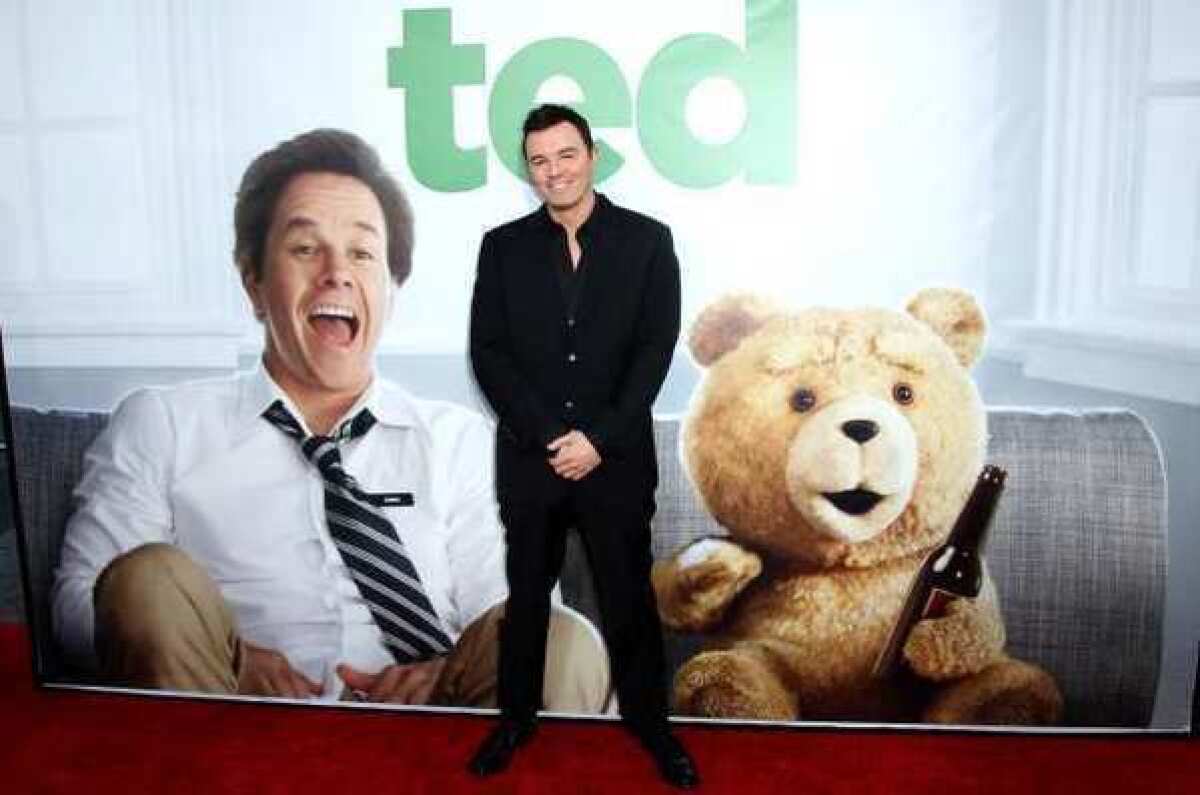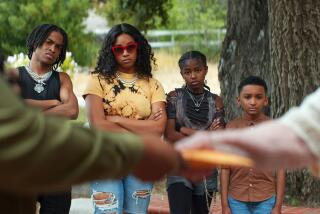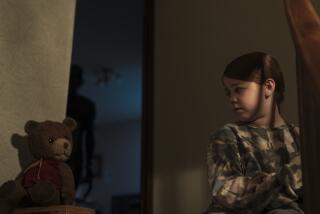Is raunchy R-rated ‘Ted’ really America’s favorite family film?

When I was with a group of parents earlier this week, watching our kids play in a 14-and-under baseball tournament, I asked them how many of the boys—aged 13 and 14--had gone to see the R-rated movie “Ted.” The answer: Just about all of ‘em. But here’s what I found really surprising: Nearly all of them went with their mothers.
Put simply: Despite its rampant drug use, crude sexual banter and profanity-fueled humor, “Ted” has become a family movie.
I have to admit that I wasn’t exactly shocked. When my wife and I saw “Ted” last Sunday afternoon, we sat next to a dad with his son. When I asked the boy how old he was, he said 11.
REVIEW: ‘Ted’ is crude but cuddly enough
This isn’t the first time a lot of parents have taken their well-under-17 kids to a raunchy comedy. “The Hangover” series, which was also R-rated, also had considerable multi-generational appeal, though judging from anecdotal evidence, it was more of a father and son experience—bachelor parties gone bad isn’t exactly a mom-friendly genre.
But “Ted” has crashed the cultural zeitgeist in a big way. At first, I figured this might simply be a chattering-class phenomena. It wouldn’t exactly be a news flash that parents in West L.A. have different values than parents in Kansas City or Cleveland. But judging from the number of kids in the theaters across the country, “Ted” may be breaking records in terms of drawing pre-teens and early teens into the multiplexes.
Because it’s an R-rated movie, children under 17 seeing “Ted” have to be accompanied by a parent or adult guardian. According to CinemaScore, a research group that interviews opening-night moviegoers around the United States, the number of under-18 moviegoers for R-rated comedies tends to run somewhere between 10% to 13%.
According to CinemaScore figures, 10% of the opening-night audience for “Horrible Bosses” and “Bridesmaids” was under 18. For “Hangover 2” and “Knocked Up,” it was 13%. For “Ted,” it was a whopping 18%. And those are just opening-night figures. If the survey included Saturday night and Sunday afternoon moviegoers, the percentage would surely be considerably higher.
But what made “Ted” such a family-friendly film, despite its R-rated escapades? After talking to a bunch of moms as well as some Hollywood marketing executives, I think I can sketch out a few plausible theories.
First off, the film benefited in a big way from we might call the Seth MacFarlane Factor. MacFarlane, who co-wrote and directed the film, has built up a huge reservoir of goodwill with parents and kids, thanks to his popular “Family Guy” TV series. Even though the show’s comedy is sarcastic and occasionally crass, it’s hardly outrageously offensive material. So when parents saw MacFarlane’s name plastered all over Universal Pictures’ ads for “Ted,” they assumed that the film’s comedy wouldn’t be as nasty or insulting as “Project X” or Adam Sandler’s “That’s My Boy,” two recent R-rated comedies.
And of course, “Ted” had, at its center, a teddy bear. I suspect many moms were subconsciously drawn to the film because of the bear. Even though the bear actually has a mouth like a sewer, it was a reassuring icon from their kids’ childhoods. As one mom told me: “I loved that teddy bear. He could’ve said anything and it wouldn’t have bothered me. If they’d been selling stuffed ‘Ted’ bears at the concession counter, I would’ve bought one.”
Movie marketers view it pretty much the same way. “You could say that parents were tricked, in the best possible way, by the combination of the furriness of the bear and acceptability of Seth MacFarlane,” said one studio marketing chief. Because of the bear, “Ted” had a very different image with parents than a stoner comedy featuring Seth Rogen or Jonah Hill.
“Most R-rated comedies with lots of drugs and bad behavior come off as emulatable or aspirational, which for moms, is a huge drawback,” he said. “But somehow it’s OK to see scenes where Mark Wahlberg gets stoned with a teddy bear. It comes off as far more of a harmless fantasy than if Wahlberg was getting stoned with Owen Wilson.”
“Ted” also benefited from its online buzz factor. When Universal first put up the film’s red-band trailer this year, the blogosphere and Twitter were filled with positive word-of-mouth. By the time the movie opened, fans were tweeting about the packed theaters and sharing great moments from the film.
The positive buzz created what movie marketers call a collective sense of momentum for the film. “Everyone is so inter-connected now that when you have a hit, it feeds off of its own frenzy,” said one marketing expert. “When the kids are all tweeting, ‘It’s so cool’ and ‘I’m at this theater—why aren’t you here too?’ it creates an enormous peer pressure that parents find hard to resist.”
Or as one mom told me: “It just gets to the breaking point where you go, ‘Am I going to be the only parent who says no?’”
Speaking from personal experience—I have one of those 14-year-old boys too-- it isn’t easy to say no. So far, I’ve been holding firm. I let my son see “21 Jump Street” and “American Reunion,” which were both R-rated comedies, but I’m drawing a line in the sand with “Ted.” The foul language and sexual innuendo didn’t bother me, but the massive amount of casual drug use—even if it involved a guy and a bear—came off as a bit too easy to emulate for me.
But how firm is that line in the sand? Ask any parent. When a movie is as irresistible as “Ted,” it creates a big cultural wave, certainly a wave big enough to wash away a lot of parental lines in the sand.
ALSO:
Grow up? Not this ‘Ted’ generation
Hollywood film talent migrates to cable TV
‘That’s My Boy’ is an ominous sign for Adam Sandler
Follow me on Twitter: @patrickbigpix
More to Read
Only good movies
Get the Indie Focus newsletter, Mark Olsen's weekly guide to the world of cinema.
You may occasionally receive promotional content from the Los Angeles Times.






